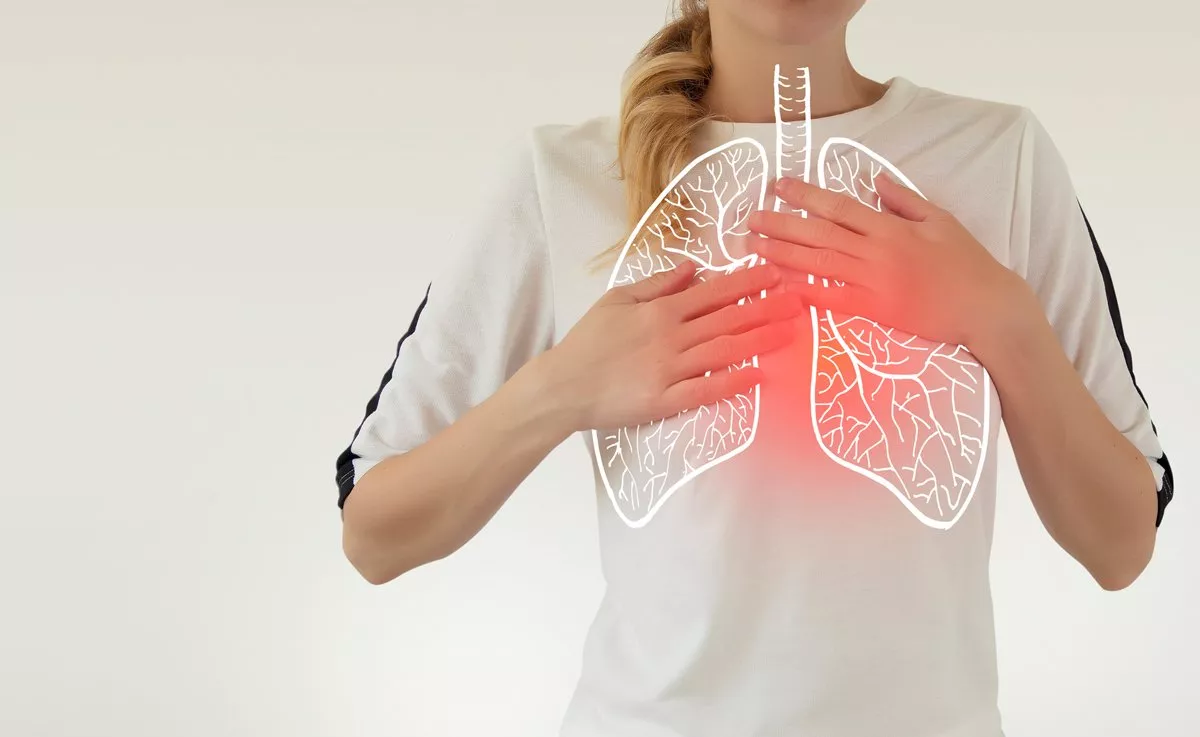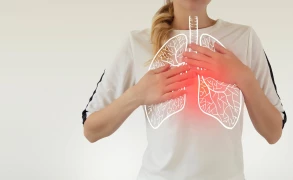
What is Bronchiolitis?
- What is Bronchiolitis?
- What are the symptoms of bronchiolitis?
- What causes bronchiolitis?
- How is bronchiolitis diagnosed?
- Can bronchiolitis be prevented?
- How is bronchiolitis treated?
- Living with bronchiolitis
Bronchiolitis is a lung infection and is most common in infants and young children. It occurs when the small air passages (bronchioles) in the lungs become inflamed and clogged with mucus. This makes it very difficult for the child to breathe.
Bronchiolitis is usually caused by viruses. Respiratory syncytial virus (RSV) is the most common cause. This disease is common in children younger than 2 years of age, especially those aged 3 months to 6 months. The number of sick people peaks in winter and early spring.
Premature babies have a high risk of complications due to RSV. There is an RSV vaccine recommended for infants in this group.
What are the symptoms of bronchiolitis?
The first sign of bronchiolitis is similar to the symptoms of the common cold. The child may have a runny nose, cough and mild fever for a few days. After that, your child may begin to breathe faster and wheeze (he makes a whistling sound when breathing).
Go to your doctor if:
- The child is vomiting and is not drinking fluids.
- The child is breathing too fast. If he is breathing more than 40 breaths in 1 minute.
- You see the child's stomach go between his ribs with each breath, or if the child needs to sit upright to breathe.
- The child has had heart disease or was born prematurely. In this case, even at the first signs of this disease, call the doctor.
- The child's lips or fingertips appear bluish, they may not be getting enough oxygen. Get medical help right away or call the emergency room.
What causes bronchiolitis?
Bronchiolitis is caused by a virus. Respiratory syncytial virus (RSV) is the most common known cause. The virus is transmitted when an infected person comes into direct contact with another child. Your child can also become infected by touching toys or other objects that a sick person has touched.
How is bronchiolitis diagnosed?
The doctor will ask about the child's symptoms, examine the child and listen to his lungs, check if the child is getting enough oxygen or may test a sample of mucus or discharge from the nose for RSV and also order a chest X-ray to check for pneumonia.
Can bronchiolitis be prevented?
RSV and other viruses that cause bronchiolitis are quite common and easily transmitted. Older children and adults can also get the virus. But they don't usually get sick. The best way to prevent bronchiolitis is to prevent the child from contracting the virus.
- Keep your child away from sick children, individuals with colds or other illnesses.
- Stay away from crowded environments where viruses can spread easily. These can be elevators and shopping malls.
- Wash your hands and your child's hands frequently with soap.
- Regularly disinfect surfaces, toys and other objects in your home.
If your child has bronchiolitis, keep them at home until they're well, so they don't get coughed up on other children. Remember to wash your hands while caring for your sick child.
How is bronchiolitis treated?
Because bronchiolitis is caused by a virus, antibiotics and other medications do not help treat it. The healing process of the disease usually takes 2-3 weeks. In the meantime, you can control symptoms with home treatment.
If your child is very sick, it may need to stay in the hospital. If your child is having trouble breathing and not getting enough oxygen or is dehydrated, hospitalization is considered appropriate. So your child can get oxygen and fluids in the hospital. Also, doctors clear mucus from the lungs. Most children hospitalized for bronchiolitis leave the hospital quickly.
Living with bronchiolitis
Most sick children's symptoms can be controlled with home treatment.
- Make sure to give your child plenty of fluids. Do not be afraid if he does not want to eat solid food, this is normal.
- You can use drops and a nasal aspirator to remove mucus from the nose.
- You can use a steamer in the bedroom while your child is sleeping.
- You can sit with your child in a bath where you create steam. Turn on the hot water in the shower or tub and let the steam build up, then grab the water and grab a stool and sit in the bathroom for a while.
- Ask the doctor if you can give acetaminophen (such as tylenol for babies) if your child has a fever. You should not give aspirin to your child. Aspirin may adversely affect Reye's syndrome in children with diseases such as brain and liver.
Some questions to ask your doctor:
- What should I do to make my child comfortable?
- How soon will my child recover?
- Should I isolate my child from other children and children for as long as they are sick?
- Should I send my child to daycare? How long should I keep in isolation at home?
- What should I do if my child's symptoms get worse?
- My child has asthma, can this disease trigger an asthma attack?
- Will the steamer help to relax my child?
- What medications can I give my child?





